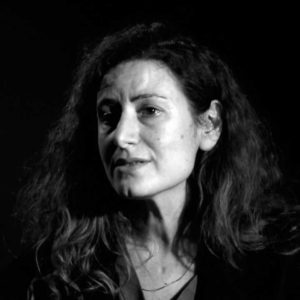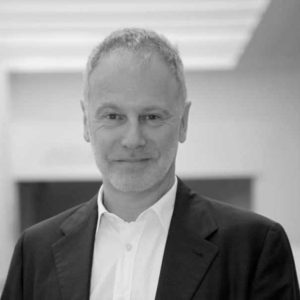LOOP Barcelona interviews curator Marcella Lista

Marcella Lista, curator of the Centre Pompidou, joined the LOOP jury for the edition of 2018. She tells LOOP about her thouhgts on collecting.
How would you define collecting?
For a public institution, collecting means keeping history alive by constantly reconsidering the inherited or the “fashionable” narratives.
Do you think that collecting has an inherent and cultural aspect to it?
I think every kid who saves images they like on their phones or computers behaves like a collector. The impulse of collecting is desire. The desires of the curators play a role, of course, but I also think an institution reflects the desires that circulate in a given situation of society and a given historical moment.
What role can public and private collections play in shaping the contemporary art scene?
My answer to this might sound traditionalist. I don’t think contemporary artists only look at contemporary art and that the role of a collection is to select and qualify “contemporary” art works. What I expect from a collection is to provoke and inspire a contemporary gaze – a gaze that is sensitive to the issues of the present time – on any form of art. Along with this consideration, it is obvious that one of the missions of public and private collections is to support living artists and make their visions play a role.
What do you think are the challenges related to collecting artists’ films and videos?
There are many ways in which collections of film and video can be conceived, displayed and enjoyed. If we want them to persist through time, most important is a symbolic step: to admit that “immaterial” objects need just as much care as material ones. Today, the challenge of conservation can be handled relatively easily, there is now a serious mobilization on this issue and expertise is widely available. Given what Hito Steyerl has commented as the “poor image” produced by the rapid replication and circulation of film and video through digital networks, it makes more and more sense to approach these media with an awareness of the difference a collection can do in terms of preservation of artworks for the future.
Do you think there is an increasing attention towards video on the part of private collectors?
While video has almost disappeared from the general art fairs, it becomes more and more of a field of personal passion and exploration on the part of collectors. Most art lovers realize that there is a major heritage in the video art of the 20th Century, that it is no longer in the margins of contemporary art and that it appears rarely an exclusive medium. This is why it can only be taken into account when paying a serious attention to what is at play in art practices today.
Do you think that the limited edition model can or should coexist with the free streaming of online video content?
I consider the two models to be compatible if this double-existence goes along with the artistic concept of the work.
With a PhD in Art History, Marcella Lista is, since 2016, Chief Curator of the New Media Collection at the National Museum of Modern Art – Centre Pompidou, Paris. She has devoted research work to the visual culture of sound. Her work also deals, more broadly, with experimental artistic practices involving film and video, installation, dance and performance. She was previously Associate Professor in History of Art in Université de Limoges and Head of Programs of the Auditorium of the Louvre Museum in Paris, where she has notably launched a series of contemporary art projects. She has recently published : “Noter les seuils de l’écoute : entretien avec Lawrence Abu Hamdan”, Les Cahiers du Musée National d’Art Moderne, Hors –série 2017 « Notations », Paris, 2017 ; and the exhibition catalogue, Ryoji Ikeda : continuum, Paris, Editions Xavier Barral, 2018.
She has recently curated exhibitions in the following centres : Beirut Art Center, Beirut; Carré d’Art, Nîmes; Centre Pompidou, Paris; Kanal-Centre Pompidou, Brussels ; and for the Prix Marcel Duchamp 2018.
What to read next

Ferran Barenblit, MACBA director and part of our jury, shares with LOOP Barcelona his thoughts on collecting
Tuesday 18 December 2018

LOOP Barcelona Interviews Centro Botin's director Benjamin Weil
Tuesday 18 December 2018

LOOP Barcelona interviews Wiels artistic director Dirk Snauwaert
Tuesday 18 December 2018
 <
<
